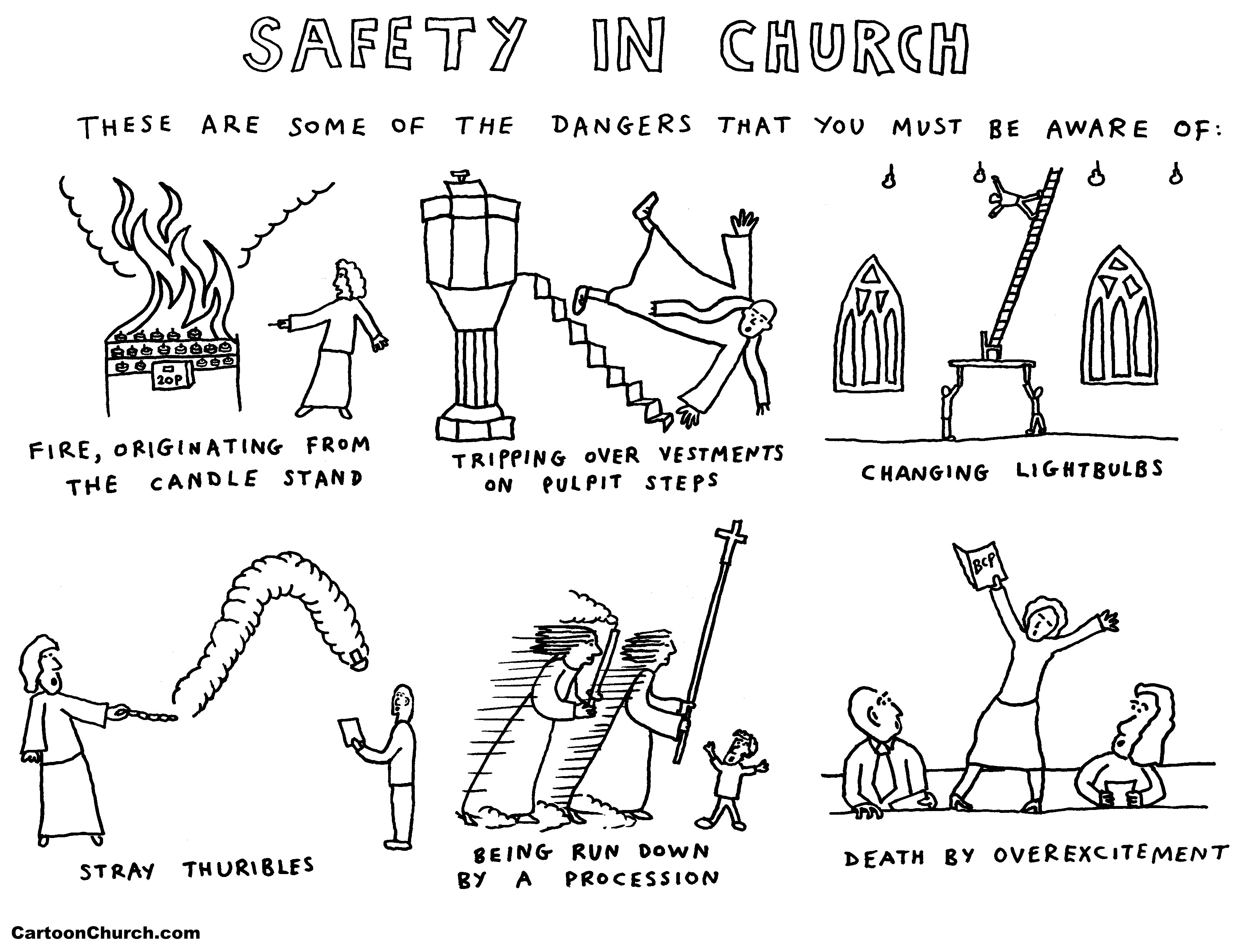
The information contained in this section relating to Health and Safety is for guidance only. Parishes must seek independent advice relevant to their church building(s).
Header Text
Footer Text
Header Text
Footer Text

The information contained in this section relating to Health and Safety is for guidance only. Parishes must seek independent advice relevant to their church building(s).
The information contained in this section relating to Health and Safety is for guidance only and Parishes should seek independent advice relevant to their church building(s).
Examples of legislation and regulations when parishes are considering and managing any works to buildings are:
A fire risk assessment (FRA) should be carried out which will consider many aspects of the church building and take into account the number of people using it. The FRA must be reviewed annually and if there is a substantial change to the building for example, re-ordering and use.
Some examples of fire safety are:
Some aspects to consider but do take specialist advice relevant to your church building.
These regulations apply to your church building:
Annual servicing and maintenance to gas heating and appliances must be carried out and certified to that effect by a Gas Safe Registered contractor. If there are any issues relating as safety these must be acted upon immediately.
Electrical installation 'hard wired' testing should be carried out every 5 years by a certified electrician and an Electrical Installation Condition Report (EICR) must be provided. In respect of Portable Appliance Testing (PAT), this needs to be done and recorded, including visual inspections. Specialist advice should be sought on frequency of testing. An inventory of all electrical appliances is to be kept and updated when new equipment is provided.
Sump pumps and pumped drainage systems located within basement boiler rooms, undercrofts and the like will need to be serviced and maintained on a periodic basis. In the event of pump failure, immediate action must be taken to prevent the risk of flooding.
Solar photovoltaic (PV) panels including batteries, associated equipment and controls must be inspected and checked on a periodic basis. It is important that as part of system design, that any necessary fire rated enclosure(s) for batteries and other precautions are put in place, which would be advised upon together with an inspection strategy by the manufacturer and installer. When proposing the installation of panels, a structural assessment of roof structures would be required to determine if the roof can take the weight of panels or need strengthening.
Periodic servicing of renewable heating systems such as air source heat pumps must be carried out in accordance with the manufacturer's instructions and be done by a suitably qualified heating engineer.
Periodic servicing and maintenance of oil heating systems are required by a certified engineer, including the checking of integrity of tanks and bunds for any signs of defects and leaks. Any oil incidents must be acted upon immediately to reduce risks to people and pollution to the environment.
To ensure the efficiency of systems for example, air conditioning, ventilation ducting and grilles; then routine inspection and servicing, including changing of filters and checking flow rates should be carried out by a specialists. Where there are standard 'domestic type' extractor fans to toilet and kitchen areas, it is good practice to clean the grilles and for an electrician to check and clean the fans on a regular basis. If fans stop working, repair/replacement should be done.
As part of servicing and testing for compliance, all appliances and equipment must be done checked in accordance with manufacturers/installers instructions. This would also include for inspection and cleaning of cooking extraction and ventilation systems and when required for 'deep cleaning' work.
Routine servicing and testing of these systems must be done, including any 'stand alone' smoke alarms and carbon monoxide alarms, as advised by the servicing engineering specialist. In the case of emergency lighting systems, it is important that periodic 'drop tests' are done to ensure that batteries will provide the required amount of light for the specified period of time such as three hours. Even though a simple key switch test can be undertaken to check if a light is working, it should not be assumed that it would perform for the duration required, hence the need for 'drop tests'.